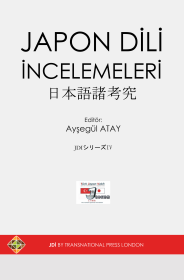Yalan Mazerete Yönelik Kazanç-Bedel Algısı: Namık Kemal Üniversitesi Örneği Üzerine
Gain - Price Perception for Lie Excuse an example of Namik Kemal University
Author(s): Levent Toksöz
Subject(s): Psychology, Psycholinguistics, Higher Education
Published by: Transnational Press London
Keywords: Lie; Excuse; Gain-Price Perception;
Summary/Abstract: In our daily lives, we need to make an explanation in situations where we can experience infighting in human relations. Explanation described as all kinds of linguistic explanatory actions consists of four subcategories as denial, legitimacy, excuse and apology. But while we do the act of explanation, for example when we make an excuse, we may employ the act of lie. Although a person may employ the act of lie in order to make a gain such as “forgiveness, s/he must face a number of prices such as “anxiety”, “stress” and “physiological pressure”. The aim of this study is to problematize the perception of gain-price attributed by Turkish university students to false excuses, and by introducing the studies on the same subject in Japan, to reveal the perspectives of the students of the two countries. A questionnaire was conducted to 168 Turkish university students and Kikuchi et al. (2008) was utilized as a research pattern and analysis method. Participants were shown three different scenarios in which a person who was late for a job interview employed the two options of lies with “a low probability of occurrence (accident)”, and “a high probability of occurrence (traffic)”, and the reality (falling asleep). The participants were asked to answer questions regarding the perception of gain-price after each scenario. The data obtained were compared with Kikuchi et al. (2008). As a result, while the Turkish students consider the balance of gain-price in the selection of excuses, Japanese students attribute importance to the price to be paid. It is understood that while lying, Japanese students react more sensitively to emotions such as “excitement”, “anxiety” which may cause stress at a person than Turkish students.
Book: Japon Dili İncelemeleri / 日本語諸考究
- Page Range: 43-55
- Page Count: 13
- Publication Year: 2018
- Language: Turkish
- Content File-PDF

